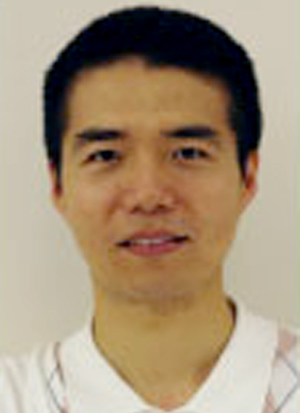Ming-Te Wang Shows Adults Key to Keeping Teens in School
By wchung | 08 Jan, 2026
Teachers and parents play a bigger role than peers in keeping adolescents engaged with school, according to a study led by University of Michigan researcher Ming-Te Wang.
“We were surprised to find that most adolescents continue to be influenced greatly by their teachers and parents when it comes to school engagement,” said Wang, a faculty research fellow at the UM Institute for Social Research.
“Even though this is a stage when young people are moving toward establishing autonomy and independence, teachers and parents remain important in helping them stay involved in school, and in extracurricular activities,” Wang said. “And this is true for all ethnic groups and races, and across all the economic groups we studied.”
“Adolescence is a period when relationships with adults who aren’t your parents become increasingly important,” Wang added. “Our results suggest that supportive teachers play a particularly important role in keeping teens engaged in school.”
Wang’s findings, which challenge the common belief that peers are the biggest influencers of adolescent values and behavior, analyzed data from 1,500 students from 23 schools in the Washington, D.C., area. The students were interviewed when they were in 7th, 9th and 11th grades. They were questioned on four indicators of student engagement: compliance with school rules, participation in extracurricular activities, identification with their school and the value placed on education.
They were also asked about the support they received from teachers, parents and peers.
The study confirmed that the students’ school engagement declined over the years, with boys’ interest showing steeper decline than girls, according to the report.
Surprisingly, peer were as likely to exert a positive as a negative influence on the students’ school engagement, the study found.
More significantly, Wang found that any negative influences from peers could be counteracted by social support from adults, especially from teachers in the form of encouraging student engagement, stressing the importance of obtaining an education, and facilitating participation in extracurricular activities.
The study was published in the current issue of the journal Child Development
Ming-Te Wang received his PhD in Developmental Psychology from Harvard University. Before entering graduate school, he worked as a school counselor in a rural middle school. This professional experience provided him with an insight into the complex web of cultural and contextual processes and their impact on development and the importance of early prevention and intervention. His research has focused on the impact of school and family climate on adolescent motivational beliefs and engagement.
Wang’s work has emphasized the interplay of developmental processes across both academic and social domains in adolescence, and situates these processes within family, school, and community contexts. In particular he has focused on: 1) the conceptualization and development of student engagement measures, including general school engagement and classroom engagement across specific subject domains; 2) the examination of antecedents, correlates, and long-term outcomes of youth academic motivation and engagement, as well as the factors and processes promoting the educational and career development of youth; and 3) the developmental impact of school- and community-based interventions targeting adolescents’ academic skills as well as mental health..

University of Michigan researcher Ming-Te Wang worked in a rural middle schools before receiving his PhD from Harvard University.
Asian American Success Stories
- The 130 Most Inspiring Asian Americans of All Time
- 12 Most Brilliant Asian Americans
- Greatest Asian American War Heroes
- Asian American Digital Pioneers
- New Asian American Imagemakers
- Asian American Innovators
- The 20 Most Inspiring Asian Sports Stars
- 5 Most Daring Asian Americans
- Surprising Superstars
- TV’s Hottest Asians
- 100 Greatest Asian American Entrepreneurs
- Asian American Wonder Women
- Greatest Asian American Rags-to-Riches Stories
- Notable Asian American Professionals

